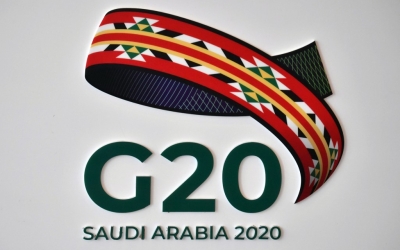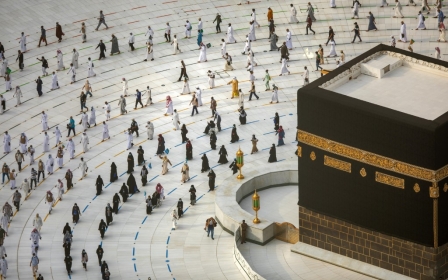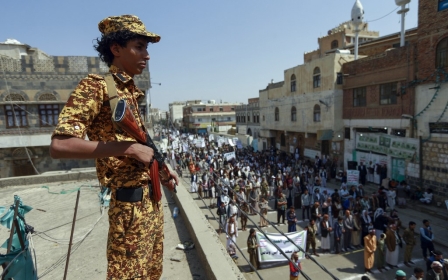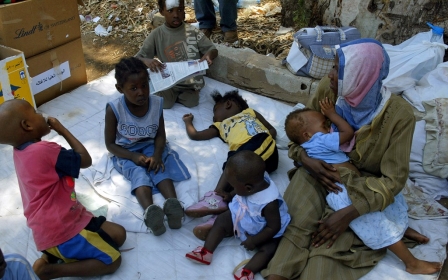Saudi King Salman delivers scathing attack on Iran in UN speech
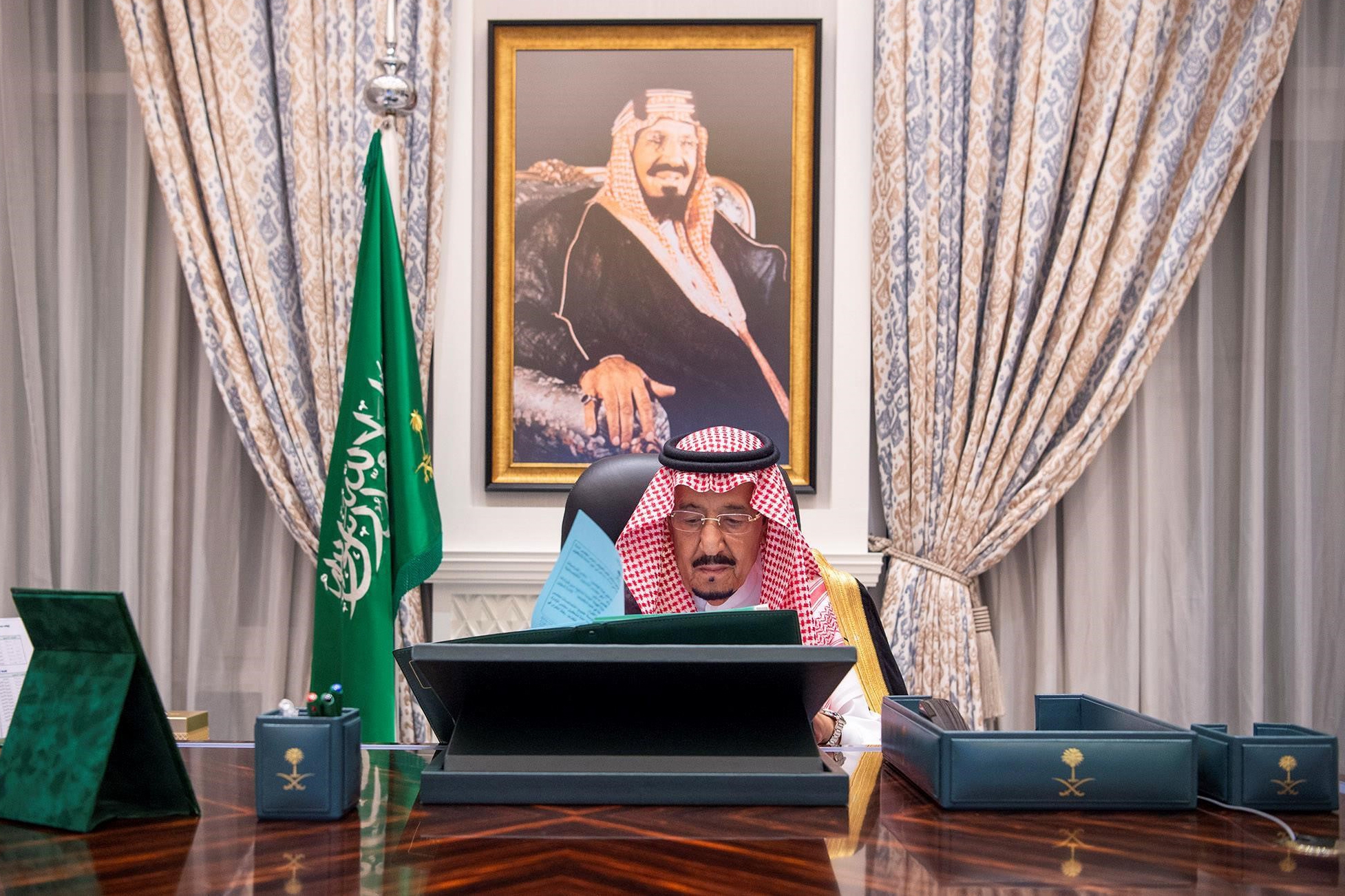
Saudi Arabia's King Salman delivered a scathing attack on Iran in a speech to the UN General Assembly on Wednesday, urging the international community to find a "comprehensive solution" to what he called Tehran's "sponsorship of terrorism".
Sitting in an office with a Saudi flag behind him, the 84-year-old monarch appeared to struggle reading the speech from a stack of papers that he held throughout, while not looking at the camera.
"Our experience with the Iranian regime has taught us that partial solutions and appeasement did not stop its threats to international peace and security," Salman told the United Nations via videolink.
The king said Riyadh had aimed to have friendly relations with Tehran over the past several decades, but Iran had allegedly intensifed its "expansionist activities" and built "terror networks" throughout the Middle East, spreading "chaos, extremism and sectarianism".
Saudi-Iranian relations
New MEE newsletter: Jerusalem Dispatch
Sign up to get the latest insights and analysis on Israel-Palestine, alongside Turkey Unpacked and other MEE newsletters
Relations between the two countries have always been uneasy, but tensions have spiked since the beginning of the war in Yemen in 2015 along with the rise of Saudi Crown Prince Mohammed bin Salman.
In 2016, Iranian protesters ransacked the kingdom's embassy in Tehran in response to the execution of prominent Saudi Shia cleric Sheikh Nimr al-Nimr.
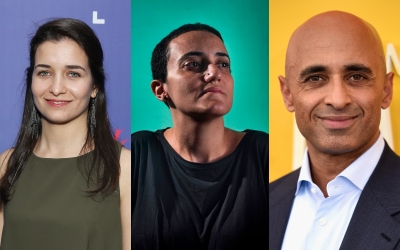
Iranian leaders say their country's foreign policy aims to help the people of the region against American hegemony. Critics also point to Saudi Arabia's own regional policies and human rights record, including the war in Yemen and the 2017 kidnaping of then-Lebanese Prime Minister Saad Hariri.
After berating Iran, Salman expressed tacit support for the recent normalisation deals between the United Arab Emirates, Bahrain and Israel, saying Riyadh backed all efforts to advance peace.
"We support the efforts of the current US administration to achieve peace in the Middle East," he said.
Still, the Saudi monarch reiterated the kingdom's commitment to the 2002 Arab peace initiative, which offered recognition of Israel only in exchange for Israeli withdrawal from Arab territories and establishing a Palestinian state with East Jerusalem as its capital.
Yemen
Salman also addressed the conflict in Yemen, blaming Iran for the crisis there. Riyadh has been leading a regional military coalition against Yemen's Houthi rebels, who are allied with Tehran.
"They continue to target civilians in Yemen and in the kingdom," he said, accusing the Houthis of disrupting the delivery of international aid and refusing to de-escalate the conflict.
Both the Houthis and the Saudi-led coalition have been accused of human rights abuses in the conflict that has killed more than 100,000 people.
Human rights groups have blamed Saudi Arabia and its Emirati allies for targeting civilians with air strikes that have hit residential buildings, hospitals, schools, funerals and factories over the past five years.
The Houthis have responded by launching ballistic missiles into the kingdom that are often intercepted by Saudi air defences, but occasionally cause damage and civilian casualties.
On Wednesday, Salman said the kingdom "will not hesitate" to defend its national security, but voiced support for UN-led efforts to find a solution to the war in Yemen.
The Saudi king also hit out against Lebanon's Hezbollah, calling the Iran-backed group a "terrorist organisation".
While expressing sympathy for the Lebanese people over the Beirut port blast that killed more than 200 people last month, Salman said the explosion was a result of Hezbollah's "hegemony" over the country.
"In order for the fraternal people of Lebanon to achieve their aspirations of security, stability and prosperity, this terrorist organisation must be disarmed," he said.
Middle East Eye delivers independent and unrivalled coverage and analysis of the Middle East, North Africa and beyond. To learn more about republishing this content and the associated fees, please fill out this form. More about MEE can be found here.


